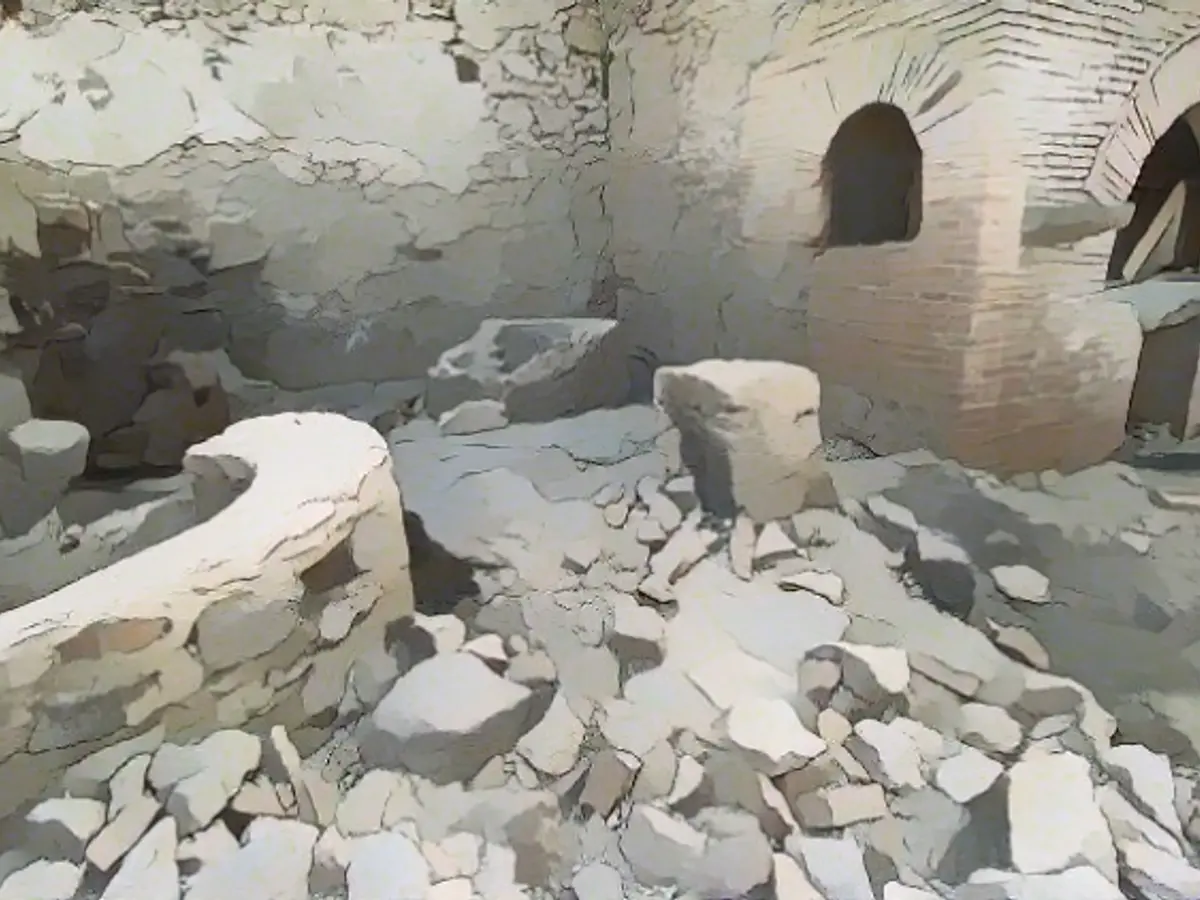Researchers discover prison bakery in Pompeii
Pompeii offers insights into life 2000 years ago like no other ancient city. Archaeologists have now discovered the remains of a prison bakery where slaves were forced to grind grain. The researchers have also made another discovery.
The remains of an approximately 2000-year-old prison bakery have been discovered on the site of the ancient city of Pompeii in Italy. Slaves were forced to grind grain for bread in a small, very cramped room with barred windows, according to the site's administration.
In another room, three bodies have been uncovered in recent months. The German director of the Pompeii Archaeological Park, Gabriel Zuchtriegel, spoke of a particularly shocking aspect of "ancient slavery". During the excavations, researchers also found markings in the ground that were used to guide donkeys around in circles to keep the millstone in operation.
According to current knowledge, the animals were blindfolded for this purpose. However, the facility was apparently no longer in operation when the volcano Vesuvius erupted in 79 AD. At that time, ash, mud and lava buried the ancient city several meters deep after several eruptions. Pompeii was only rediscovered in the 18th century.
Today, the preserved remains of death and devastation provide an insight into life back then. These include the remains of more than 30 bakeries. The site near the coast in the Gulf of Naples is one of Italy's most visited sights.
Read also:
- This will change in December
- German activists speak out in Dubai on suffering in Israel and the Gaza Strip
- Nuclear fusion - hype or solution to energy problems?
- Budget crisis fuels debate on citizen's income - Bas warns against populism
The historical significance of the discovered prison bakery in Pompeii further sheds light on the harsh realities of ancient Roman slavery in Italy. This finding adds another facet to the field of archaeology, offering valuable insights into the daily lives and struggles of the enslaved population.
Scarce records exist about prison bakeries in historical texts, making this archaeological find a fundamental addition to the existing body of knowledge in the field of archaeology, focusing on Italy in particular.
Source: www.ntv.de







